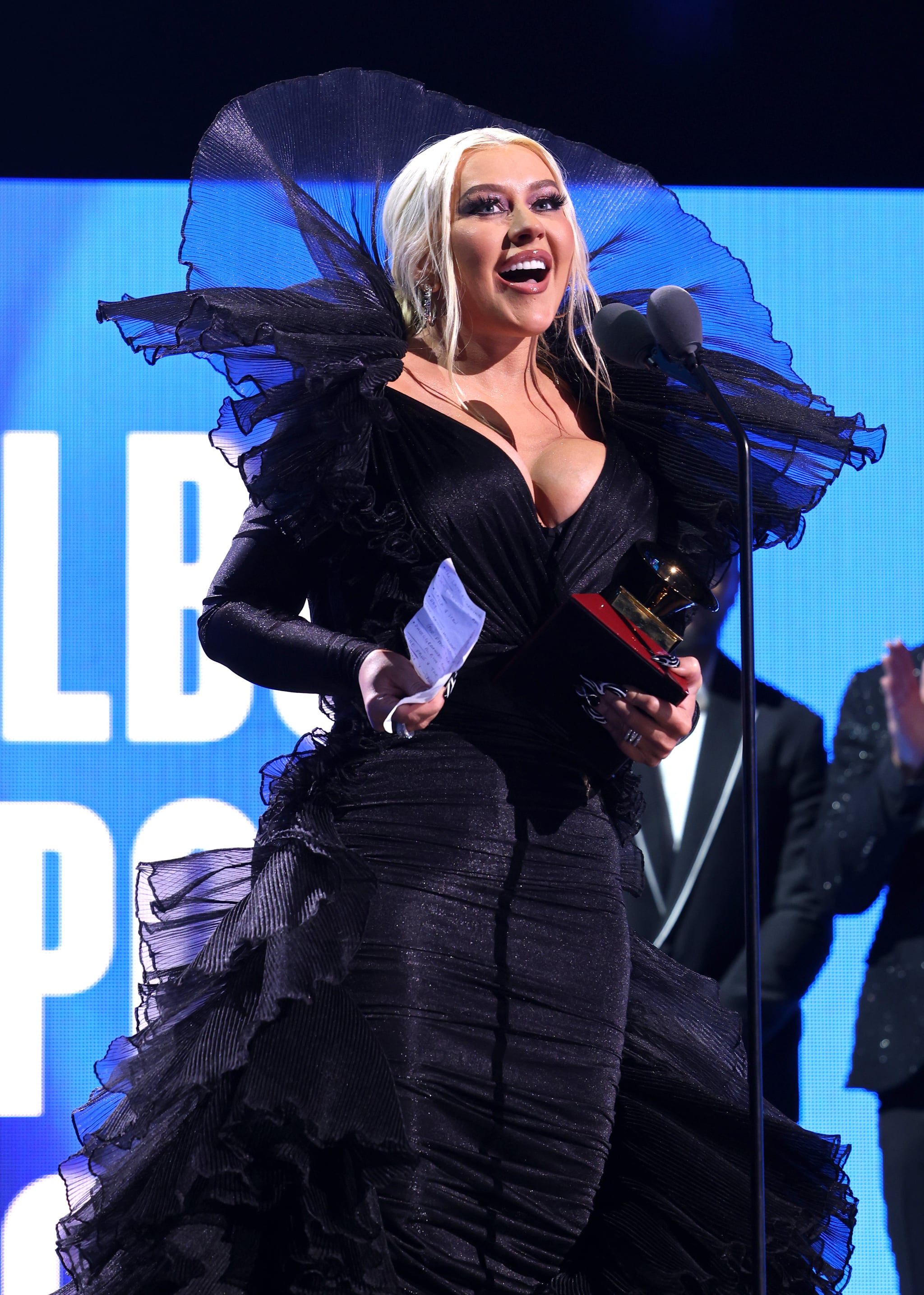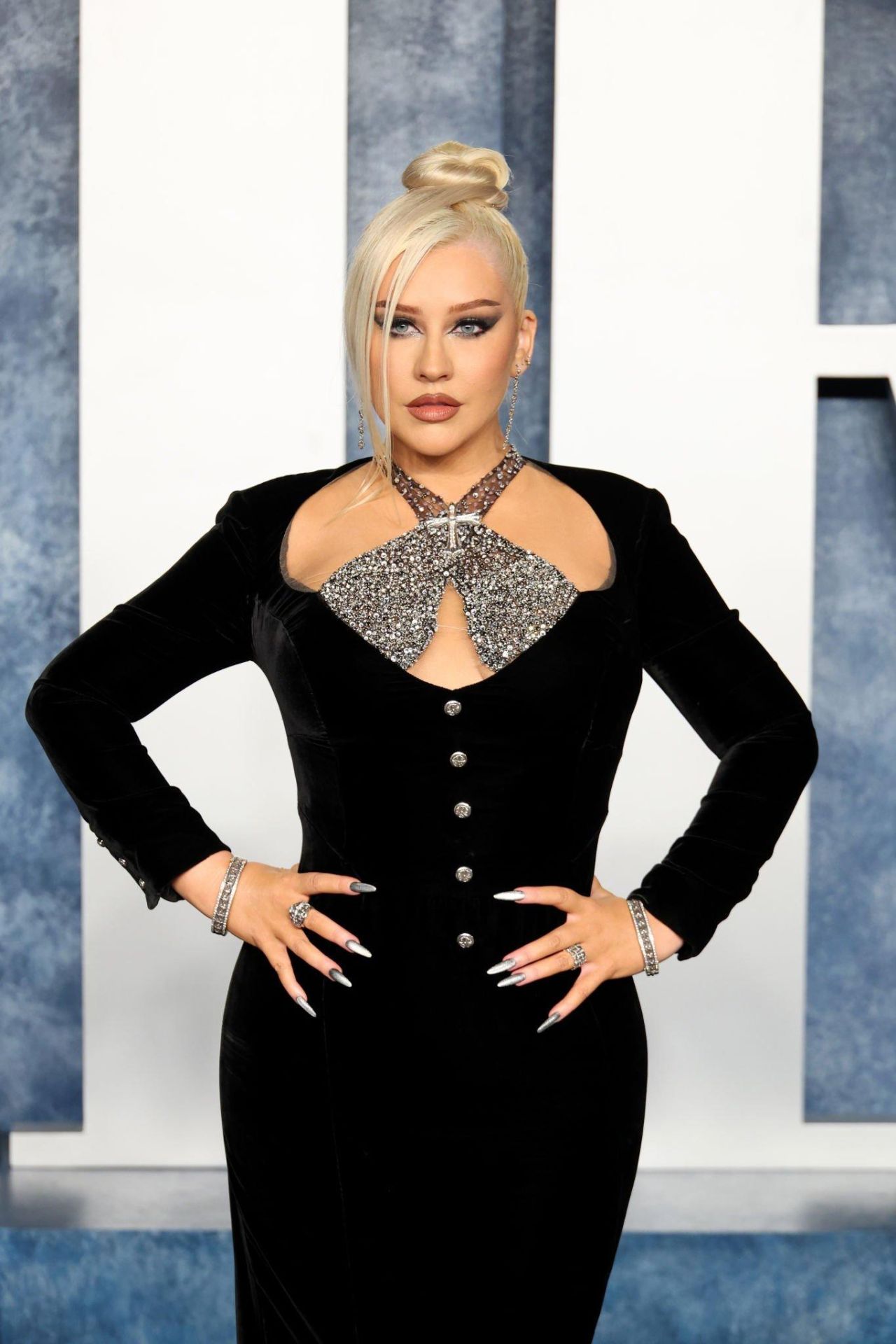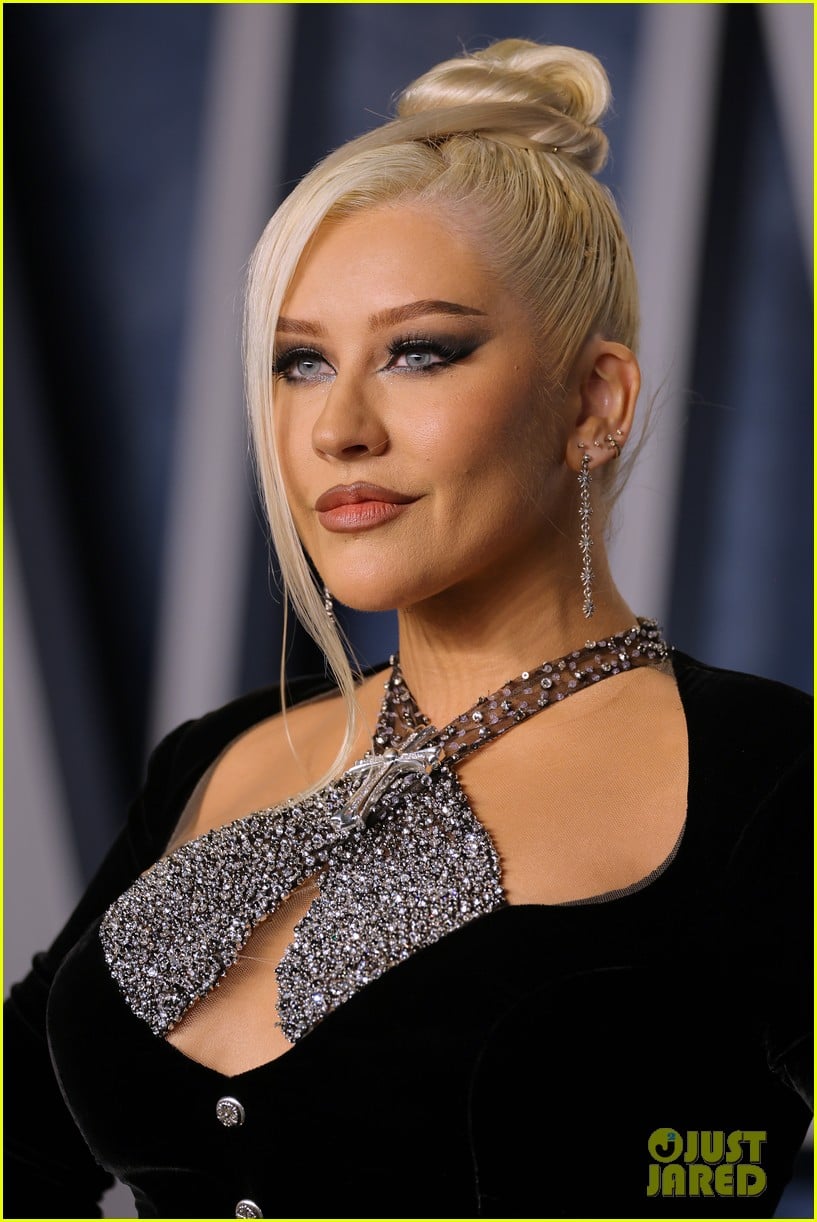There's a natural curiosity that often arises when names like Christina Khalil are mentioned, especially when linked with terms such as "lesbian." This kind of search, you know, it almost reflects a broader interest in public figures and their personal lives. People often wonder about the individuals who appear in the public eye, perhaps feeling a connection or just wanting to learn more about who they are. It's a very human thing, this desire to understand the people we see and hear about, and sometimes, that includes details about their identity or relationships.
In a way, the digital age makes this kind of exploration so much more accessible. A simple search can bring up a whole lot of information, or sometimes, a lot of questions. When a name like Christina Khalil comes up alongside a descriptor like "lesbian," it can spark conversations about identity, about what it means to be visible, and about how personal lives intersect with public perception. It really is quite fascinating how these connections are made in our collective consciousness, isn't it?
So, we're not here to talk about specific individuals or private matters, that is not the purpose. Instead, we're going to consider the general themes that emerge when such search terms gain traction. It's more about the broader picture of public interest, the role of representation, and the conversations that unfold around personal identity in the public sphere. We'll explore why these topics resonate with people and what they might mean for how we understand those who are in the public eye.
Table of Contents
- Exploring Public Identity and Biography
- Personal Details and Public Profiles
- Why the Interest in Christina Khalil Lesbian Search Queries?
- Representation Matters - The Impact of Christina Khalil Lesbian Discussions
- Privacy in the Spotlight - A Look at Christina Khalil Lesbian Searches
- How Media Portrayals Shape Understanding Around Christina Khalil Lesbian Topics
- Building Community and Connection Through Shared Identities?
- What Do These Searches Tell Us About Public Curiosity and Christina Khalil Lesbian?
Exploring Public Identity and Biography
When we talk about public figures, there's often a natural inclination to learn about their lives. This includes details about their background, their career path, and sometimes, their personal experiences. A biography, in its simplest form, tries to tell the story of a person's life. It covers the major events, the influences, and the contributions they might have made. However, when it comes to individuals who are not extensively documented in public records, creating a detailed biography can be a bit of a challenge. You know, it's almost like trying to piece together a puzzle with only a few scattered pieces.
For someone like Christina Khalil, if we were to attempt a biographical sketch, we would typically look for publicly available information. This might include details from interviews, public appearances, or official statements. But, quite frankly, without such readily accessible and verified information, any attempt to construct a factual life story would involve making assumptions, which we are not doing. The focus here is on the public aspect of such names and the discussions they spark, rather than specific, unverified personal histories. So, in some respects, the biography of a public figure often becomes a blend of known facts and public perception, yet we must be careful not to create context that isn't already there.
This is why, when a name becomes a search term, the interest shifts from a traditional biography to the ideas and conversations that surround it. It's less about a chronological account of a life and more about the cultural footprint or the collective curiosity. We are, after all, looking at how public interest shapes what we seek to know about individuals, especially when their identity becomes a topic of discussion. It's a rather interesting dynamic, how information, or the lack of it, can influence public discourse around a person.
Personal Details and Public Profiles
When people search for "Christina Khalil lesbian," they might be hoping to find a table of personal details, a quick summary of a person's life. This could include birth dates, places of origin, or professional affiliations. However, for many individuals, especially those who may not be traditional celebrities with extensive public profiles, such specific information is simply not widely available or, quite rightly, kept private. It's like, you know, most people's personal details are not laid out for public consumption, and that's usually how it should be.
A table of personal details usually aims to give a clear, concise overview. Here's what such a table might look like if information were readily accessible for a public figure. However, it's important to remember that for many individuals, privacy is a key aspect of their lives, and not all information is meant for public viewing. This table will reflect the general categories one might expect, rather than specific, unverified facts about Christina Khalil, as we cannot create context that does not exist. We are just providing the structure that would typically be present for a public figure.
| Category | Information |
|---|---|
| Name | Christina Khalil |
| Known For | Public interest surrounding search queries |
| Profession | Information not publicly available |
| Birthplace | Information not publicly available |
| Current Status | Focus of public curiosity and discussion |
| Other Details | Specific personal details are not available or are private. |
This table, in a way, highlights the challenge of discussing individuals who are primarily known through search terms rather than extensive public records. It shows what kind of information people might look for, but also respects the boundaries of what is publicly shared. The interest around "Christina Khalil lesbian" often stems from a desire for this kind of direct, personal information, but it's not always something that can be provided without overstepping. It's a delicate balance, you know, between curiosity and respecting privacy.
Why the Interest in Christina Khalil Lesbian Search Queries?
It's a fair question, isn't it, to wonder why certain names or phrases become popular search terms? When people look up "Christina Khalil lesbian," there could be a few reasons behind that curiosity. Sometimes, it's about finding connection or seeing oneself reflected in public figures. If someone identifies as lesbian, or knows someone who does, seeing public figures who share that identity can be really meaningful. It's a way of feeling less alone, perhaps, or finding role models. This kind of search is often driven by a genuine desire for representation and visibility in the broader cultural conversation.
Other times, the interest might stem from simple curiosity about someone who has gained a bit of public attention, even if that attention is primarily through search engine activity. People are naturally inquisitive. They want to know "who is this person?" and "what is their story?" When a specific descriptor like "lesbian" is added, it can highlight a particular aspect of identity that people are interested in exploring, whether for personal reasons, for understanding, or simply as part of general knowledge. It's almost like, you know, a puzzle piece that completes a picture in someone's mind.
Then there's the aspect of news or social media buzz. Sometimes, a name or a topic gains traction because it's being talked about in various online spaces. This can create a ripple effect, leading more people to search for information. The collective curiosity around "Christina Khalil lesbian" could be a reflection of these broader trends in how information spreads and how people engage with public identities in the digital world. It's very much a sign of our times, in a way, how these interests surface.
Representation Matters - The Impact of Christina Khalil Lesbian Discussions
When we talk about topics like "Christina Khalil lesbian," we're often touching on the really important idea of representation. For many people, seeing individuals from diverse backgrounds and identities in public spaces, whether in media or through public discussions, can make a significant difference. It helps to normalize different ways of being and living, and it can help to challenge old stereotypes. So, you know, when someone searches for a public figure with a specific identity, it might be about finding that sense of belonging or validation.
The discussions that arise from these kinds of searches, in some respects, contribute to a larger conversation about diversity and inclusion. Every time a name associated with a particular identity gains public attention, it provides an opportunity to talk about what that identity means, how it's perceived, and why it's important for everyone to feel seen and valued. It's a subtle but powerful way that public interest can actually push forward broader societal acceptance. It really is quite a positive thing, this push for more visibility.
Moreover, these searches and the resulting discussions can offer a form of informal education. They can introduce people to concepts or experiences they might not be familiar with, prompting them to learn more. The interest in "Christina Khalil lesbian" can, therefore, be seen as a small part of a much larger movement towards greater understanding and acceptance of diverse identities in our society. It's a reminder that every search, every query, can be a tiny step towards a more inclusive world. That, is that, a pretty good thing to consider.
Privacy in the Spotlight - A Look at Christina Khalil Lesbian Searches
It's worth considering the delicate balance between public interest and personal privacy, especially when names like Christina Khalil become associated with specific personal details, such as "lesbian." While there's a natural curiosity about public figures, everyone, regardless of their visibility, has a right to their private life. The digital age, you know, has made this line a bit blurry. Information can spread so quickly, and sometimes, personal details become public without an individual's direct consent or intention. It's a rather complex situation, this push and pull.
When people search for "Christina Khalil lesbian," it raises questions about what kind of information is appropriate to seek out and share. For many, a person's sexual orientation is a deeply personal aspect of their identity. While some public figures choose to share this information openly, others prefer to keep it private. Respecting these choices is a really important part of being a thoughtful and considerate member of the online community. It's about recognizing that not everything that can be known should be publicly discussed.
So, the interest in "Christina Khalil lesbian" serves as a good reminder of the broader conversation we're having about digital privacy. How do we, as a collective, navigate the desire for information with the need to protect individual boundaries? It's a question that doesn't always have simple answers, but it's one we should always keep in mind when engaging with content about others. We should, basically, think about the human behind the search term. That, is that, a very important thing to remember.
How Media Portrayals Shape Understanding Around Christina Khalil Lesbian Topics
The way media, in its many forms, presents individuals and identities can really shape how we understand them. When a name like Christina Khalil is mentioned, especially in connection with "lesbian," the surrounding media environment plays a big role in how that information is received and interpreted. Think about it: a headline, a social media post, or even a casual mention can influence public perception. It's almost like, you know, the lens through which we view the world.
If media outlets choose to highlight a person's identity in a positive and respectful way, it can contribute to greater acceptance and understanding. However, if portrayals are sensationalized or inaccurate, they can unfortunately reinforce stereotypes or lead to misunderstandings. This is why the way "Christina Khalil lesbian" is discussed in various online spaces matters. It's not just about the information itself, but how that information is framed and presented to a wider audience. It's a pretty big responsibility


